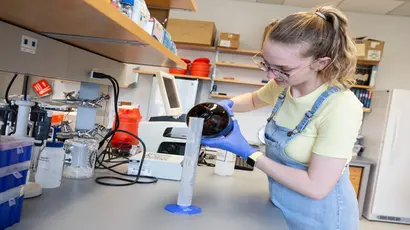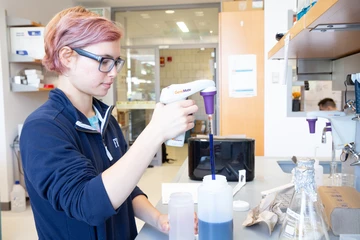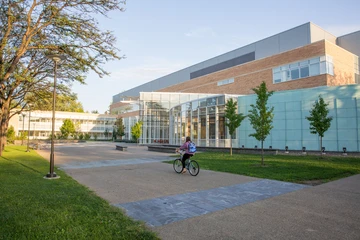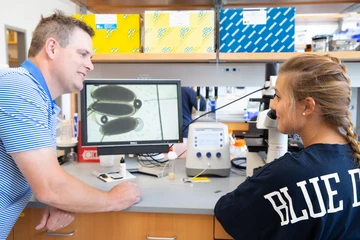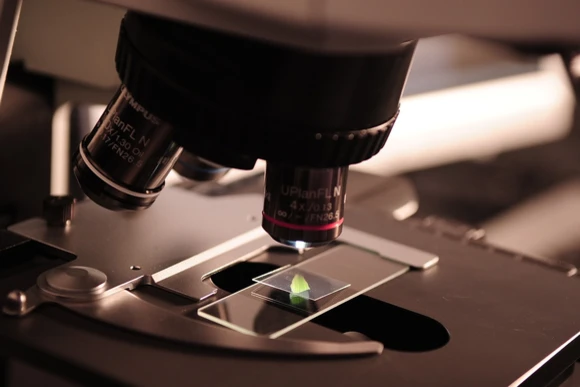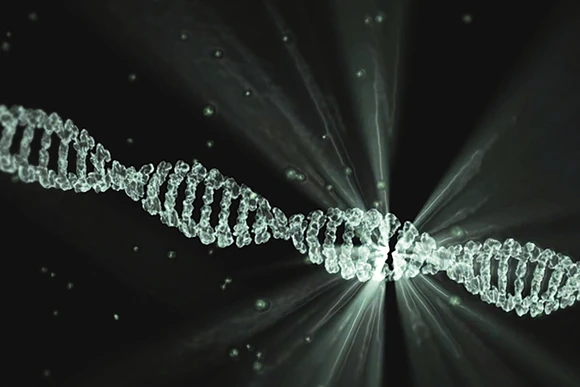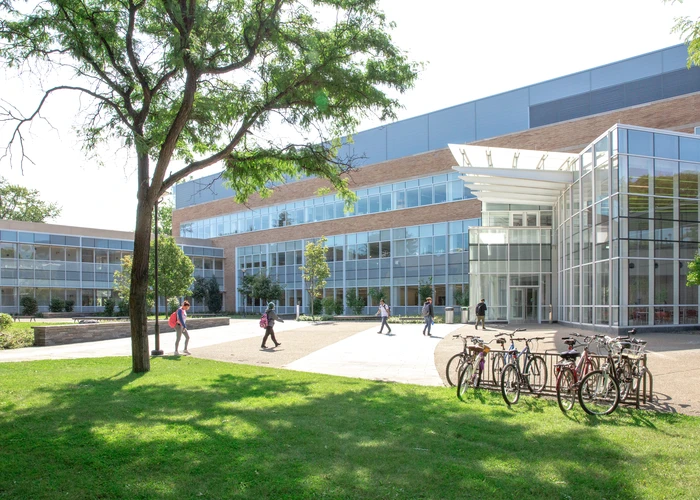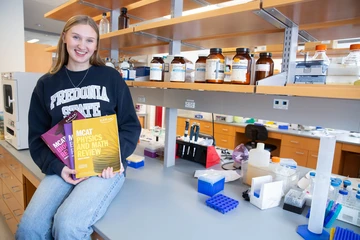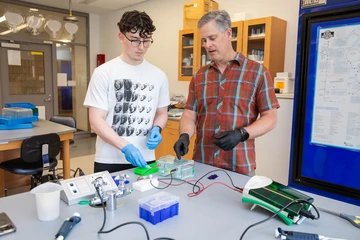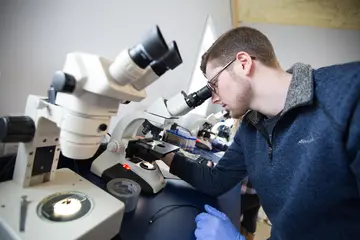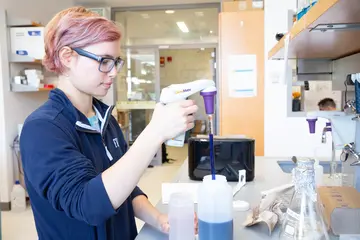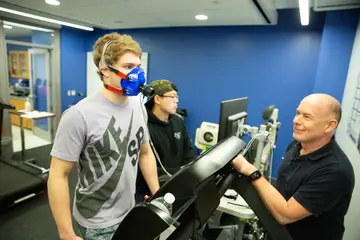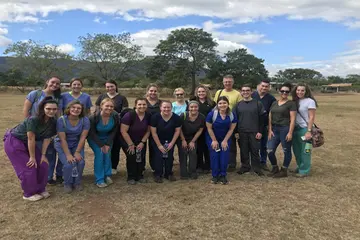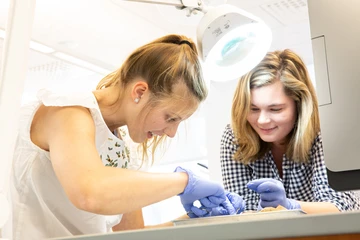Investigate the Science Behind Life
Explore the frontiers of modern experimental biology with Fredonia’s Molecular Genetics program. With a focus on cell biology, biochemistry, and genetics, you’ll gain the critical skills needed to understand how organisms develop and respond to their environments. From cutting-edge lab work to personalized research opportunities, we prepare you for a dynamic future in the biological sciences.
What You'll Gain
- Scientific Communication: Develop the ability to communicate complex scientific ideas, analyses, and arguments with clarity.
- Biological Foundations: Master essential principles in biological sciences, from molecules to ecosystems, and deepen your understanding of scientific theories and laws.
- Experimental Design: Gain expertise in designing and conducting experiments, collecting and analyzing data, and interpreting scientific findings.
- Hands-on Experience: Train in state-of-the-art laboratories using the latest instrumentation and techniques in cell and molecular biology.

